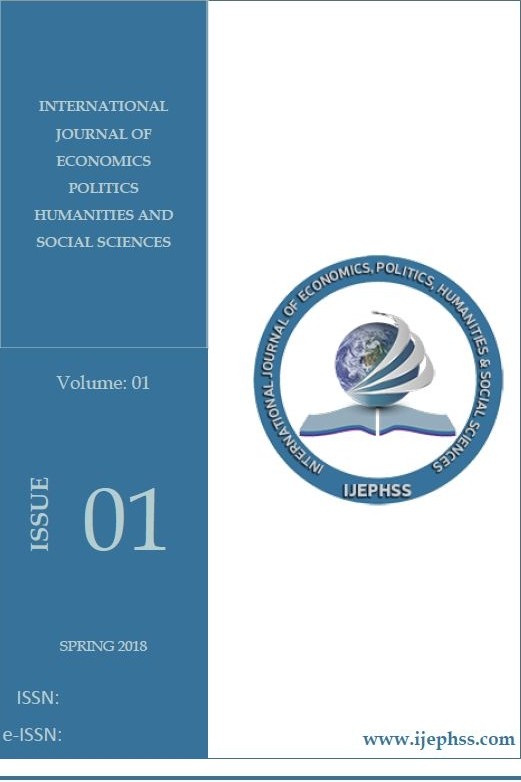Klasik Cumhuriyetçi Özgürlük Bağlamında Niccolo Machiavelli'yi Yeniden Düşünmek
Özgürlük konusunda bireyin mi yoksa toplumun mu öncelikli olacağına dair günümüzde yürütüle modern özgürlük kavramına yönelik tartışmaların teorik zeminde önemli referanslarından biri de kuşkusuz Niccolo Machiavelli’dir. Modern dönem siyaset biliminin kurucuları arasında değerlendirilen Niccolo Machiavelli’nin siyaset düşüncesinde özgürlük kavramına yönelik eleştiriler iki zıt kutupta toplanmaktadır. Bir tarafta Machiavelli’nin Prens adlı eseriyle zorbayı bireysel özgürlüklerin karşısına konumlandırdığı iddia edilirken, diğer tarafta Machiavelli’nin özgürlük savunucusu olduğu tezi ileri sürülür. Machiavelli’nin özgürlük savunucusu olduğu yönünde geliştirilen argümanlar Machiavelli’yi klasik cumhuriyetçi özgürlük geleneğinin modern temsilcisi olarak kodlar. Machiavelli’yi klasik cumhuriyetçi özgürlük bağlamında değerlendiren bu çalışmada ise iki argüman öne sürülmüştür. Bunlardan birincisi; Prens ve Söylevler adlı eserlerde ortaya çıkan tiran- yurttaş özgürlüğü geriliminin Machiavelli’de son kertede cumhuriyetçi özgürlüğe evrildiğidir. İkinci olarak ise; Machiavelli’nin içinde yaşadığı dönemdeki toplumsal çatışmaların Machiavelli tarafından geliştirilen Virtu kavramına içerilemeyeceği özellikle tartışılarak, bütün çabalarına rağmen Machiavelli’nin tiranlık-yurttaş özgürlüğü gerilimini aşamadığı ve her defasında yurttaş özgürlüğü karşısında tirana ihtiyaç duymak zorunda kalacağı yönünde bir argüman geliştirilmiştir.
Anahtar Kelimeler:
Machiavelli, Klasik Cumhuriyetçi Özgürlük, Virtu, Fortuna
Rethinking Niccolo MachiavelliWithin The Context of Classical Rebulican Freedom
Niccolo Machiavelli is undoubtedly one of the important references in the theoretical grounds of the discussions on the concept of modern freedom, which are carried out today about whether the individual or society will have priority in the issue of freedom. Criticisms of the concept of freedom in the political thought of Niccolo Machiavelli, who is considered among the founders of modern term political science, gather at two opposite poles. On the one hand, it is claimed that Machiavelli in his masterpieces, Prince, formulates a tyrant as an obstacle in exercising individual liberties, while on the other hand, it is hypothesized that Machiavelli is a defender of individual freedom. Arguments that regard Machiavelli as a defender of freedom encode Machiavelli as a modern representative of the classical republican tradition of freedom. In this study by assessing Machiavelli in the context of classical republican freedom, two arguments are put forward. The first of these is that; the tension of the tyrant-citizen freedom that emerged in the works named Prince and Discourses has evolved into Republican freedom in Machiavelli in the last instance. Secondly, it is argued that once social conflicts during the period Machiavelli has lived is taken into account, the concept of Virtue developed by Machiavelli cannot overcome the tyranny-citizen freedom tension and will have to need a permanent tyrant against individual freedoms.
___
- Aristotle. (1997). “The Politics”, With Introduction, analysis, and notes, (Çev. Peter L. Philips) Simpson as The Politics of Aristotle . Chapel Hill, The University of North Carolina Press.
- Blackstone, W. (1979). Commentaries on the Laws of England, Chicago, University of Chicago Press.
- Bock G. ve Skinner, Q. (1971). Machiavelli and Republicanism, Cambridge, Cambridge University Press.
- Colish, Marcia, L. (1971). The Idea of Libertyin Machiavelli, Journal of the History of the Ideas, 32 (3): 323-350.
- Constant, B. (1997). The Liberty of Ancients Compared with that of Moderns, London, Palgrave Publication.
- Dagger, R. (2004). Communitarianism and Republicanism, (Ed. G. F. Gaus ve C. Kukathas), Handbook of Political Theory: 167-179, London, Sage Publications.
- Herzog, D. (1986). Some Questions for Republicans, Political Theory, 14 (2): 473–93. Holden, B. (2007). Liberal Demokrasiyi Anlamak, (Çev. Hüseyin Bal), Ankara, Liberte.
- Kanatlı, M. (2017). The Concept of Freedom in Hannah Arendt’s Political Thought, Journal of Current Researches on Social Sciences, 7 (2): 101-112.
- Larmore, C. (2001). A Critique of Philip Pettit’s Republicanism, Philosophical Issues 11 (2): 229–43.
- Machiavelli, N. (1998). Prince, Chicago, The University of Chicago Press.
- Machiavelli, N. (2009). Söylevler, (Çev: Alev Tolga), İstanbul, Say Yayınları. Nafiz TOK (Ed.) Antik Bir Düşünce Geleneği Üzerine Çağdaş Yorumlar: Cumhuriyetçilik, Ankara, Orion Yayınları.
- Oldfield, A. (1990). Citizenship and Community: Civic Republicanism and the Modern World, London, Routledge Press.
- Öztürk, A. (2013). Machiavelli Düşüncesinde Cumhuriyetçi Özgürlük ve Kurucu Lider İmgesi, Ankara Üniversitesi SBF Dergisi, 68 (2): 181-204.
- Pettit, P. (1989). “The Freedom of the City: A Republican Ideal,” (Ed. Alan Hamlin ve Philip Pettit), The Good Polity, Oxford, Blackwell Publishers.
- Prezzolini, G. (1967). Machiavelli, New York, Michigan UniversityPress. Rousseau, J.J. (1999). Discourse on Political Economy And The Social Contract, (Ed. ve Çev. Betts, Christopher), Oxford, Oxford University Press.
- Sandel, M. (1996). Democracy’s Discontent America in a Search of a Public Philosophy, Cambridge, The Belknap Press of Harvard University Press.
- Spitz, Jean, F. (1993). The Concept of Liberty and A Theory of Justice and Its Republican Version, Ratio Juris, 7 (3): 331–47.
- Şahin, B. (2008). “Özgürlük Ekseninde Liberalizm ve Cumhuriyetçiliğin İlişkisi” içinde
- Tannenbaum, D., D. Schultz. (2005). Siyasi Düşünce Tarihi Filozoflar ve Fikirleri, Çev. Fatih Demirci, Ankara: Adres Yayınları
- Terchek, Ronald, J. (1997). Republican Paradoxes and Liberal Anxieties, Lanham, Rowman and Littlefield.
- Vatter, Miguel. E. (2000). Between Form and Event: Machiavelli’s Theory of Political Freedom, New York: Springer Press.
- Viroli, M. (1993). “Machiavelli and Republican Idea of Politics”, (Ed. Skinner Quentin), Machiavelli and Republicanism, Cambridge, Cambridge University Press.
- Wood, E. M. (2005). Property and Freedom, Cambridge, MIT Press.
- Başlangıç: 2018
- Yayıncı: Onur OĞUZ
Sayıdaki Diğer Makaleler
Fisher Etkisi: Yükselen Piyasa Ekonomileri Üzerine Bir Uygulama
Marka İmajı: Göbeklitepe ile Stonehenge Arkeoloji Alanlarının Marka İmajı Açısından Betimsel Analizi
Türkiye Kökenli Almanyalı Müslümanların Sosyal Katılımı: Perspektif Dergisi Örneği
Klasik Cumhuriyetçi Özgürlük Bağlamında Niccolo Machiavelli'yi Yeniden Düşünmek
Hindutva as an Informal Institution
Türkiye'de Doğrudan Yabancı Yatırımlar İle İşsizlik Oranı Arasındaki İlişki (2005-2019)
